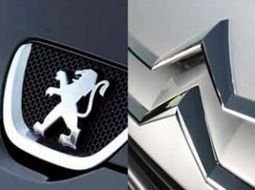Peugeot To Move “Upscale”, PSA Remains Without Low-Cost Brand

The announcement came as PSA announced a record $6.7 billion loss for 2012, compared with a $588 million profit in 2011. PSA also laid out its plans for a recovery, including the baffling upscale move for the quality-plagued Peugeot brand.
Automotive News reported on the developments, quoting PSA CEO Philippe Varin
“The Peugeot brand will move toward a more modern image,” led by the 208 subcompact’s high-performance GTI version and the new 2008 SUV-styled crossover, Varin said. “In 2013, the positioning of our brands will be supported by a very rich range of products and 17 vehicle launches,” he said.
Despite being fetishized by North American euro-philes, Peugeot is on the cusp of irrelevancy in the European car market. While they have had some success with their B and C-segment offerings, the market for D-segment and above sedans has been moribund since Mitterand was in the Élysée Palace, serving mostly as minicabs in third-rate British towns and transportation for the bad guys in Ronin. The notion of Peugeot as a premium brand is laughable, and complicated even further by their intra-group rival Citroen.
At the turn of the decade, Citroen launched their DS line of premium hatchbacks, models which won critical acclaim but have still yet to set the sales charts on fire (the DS5, above, is the ride of choice for France’s Prime Minister). That will leave PSA with two brands which are aspiring to play in the premium segment, but without any sort of strategy for a low-cost brand to be sold both in Europe and developing markets – a strategy that has helped Renault-Nissan reap fat margins even in the current lean times. Unbelievably this strategy is a central tenet of PSA’s recovery plan, which was demanded in exchange for government help for its financing unit.
Among the other stipulations include targeting for 50 percent of its vehicles to be sold outside Europe by 2015 (a tough one, in light of having no low-cost product to sell in developing markets), doubling production volumes via its alliance with GM, and achieving a 13 percent market share in a market that PSA assumes will hold at 2012 levels of car sales. In the words of one Credit Suisse analyst ”Both look unlikely now”. Given that the writing is on the wall for a continued decline in European new car sales it’s impossible to fathom how PSA could present these plans with a straight face.
But for a company like PSA, 2015 is a long way away. Let’s see if they make it through 2013 without becoming partially state owned, and then take it from there.
Related News


